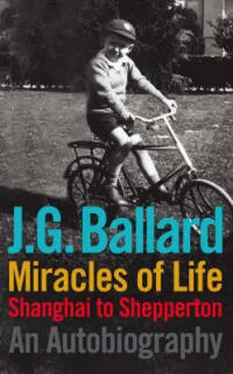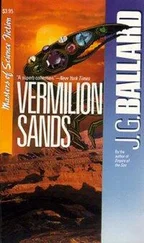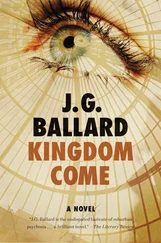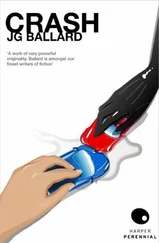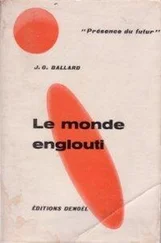In London in the spring of 1988 there was a royal command performance of Empire of the Sun , attended by Spielberg and Steve Ross, the head of Time Warner and a hugely influential man. I am a lifelong republican and would like to see the monarchy and all hereditary titles abolished, but I was impressed by how hard the Queen worked, making friendly comments to each of us. She was poorly briefed by her English guide, and had to ask Ross what he did, an example of British parochialism (though no fault of the Queen’s) at its worst. Cher, among the Hollywood stars in the line-up, suggested to the Queen that she might like to see her own film, Moonstruck , then playing on the other side of Leicester Square. Her tone implied that now would be a good time for the Queen to cut and run, if she wanted to see a real movie. It was another extraordinary evening, and one of the strangest sights was the band of the Coldstream Guards marching into the auditorium and the Queen standing to listen to her own anthem. I felt that she was the one person entitled to sit down.
* * *
In 1991 I was invited to serve on the jury at MystFest, an Italian film festival of crime and mystery films, which was then held at Viareggio, near the beach where the drowned Shelley was cremated by his friends. The chairman of the jury was Jules Dassin, one of the Hollywood exiles and husband of Melina Mercouri, and the director of Rififi, The Naked City and other classic noir thrillers. Another of the jurors was Suzanne Cloutier, a former wife of Peter Ustinov who had played Desdemona in Orson Welles’s Othello . Nick Roeg and Theresa Russell were the guests of honour, and we had a great time in the hotel bar. Claire got on especially well with a young American film-maker of whom none of us had heard; he was screening his first film in a small off-the-beach cinema out of competition. Dassin, a kindly but ailing old man still recovering from open-heart surgery, found him particularly tiring. ‘Who is this young man?’ he asked me. ‘He makes so much noise…’ I put out a few feelers and reported back that the young man was called Quentin Tarantino and the film was Reservoir Dogs . A year later he was one of the most famous directors in the world.
MystFest was interesting to me because it demonstrated the peculiar psychology of the jury system. The six jurors, with Claire as supernumerary, enjoyed our meals together in Viareggio’s best restaurants, including Puccini’s favourite. It seemed to me that we were in agreement about everything, sharing the same taste in films, whether European, Japanese or American. I was sure we would come to a speedy conclusion when we sat down to decide on the winner.
Halfway through the festival, when we had seen five films, Jules Dassin called a meeting. ‘The films are rubbish,’ he told us. ‘We’ll give the prize to Roeg.’ We had not yet seen Roeg’s film, Cold Heaven , and I pointed out that there were six films waiting to be screened for us. ‘They’ll be rubbish too,’ Dassin said. I suspect that he was under pressure from the festival management to steer the best film award to Roeg. Bob Swaim, the American director of Half Moon Street and La Balance (‘I always sleep with my leading ladies.’ This left me agog. ‘You’ve had sex with Sigourney Weaver? Tell me more.’ ‘No, not Sigourney.’) and I insisted that we see all the films, though the other jurors were ready to follow Dassin.
In the event, sadly, Roeg’s film was not one of his better efforts, and at our final meeting Dassin gave up his attempt to award the prix d’or to him. But our problems had only just begun. As we discussed the eleven films it soon became clear that we would never agree. Each member of the jury had his or her favourite, which the other jurors dismissed with contempt. We stared at each speaker as if he had announced that he was Napoleon Bonaparte and was about to be taken away by the men in the white coats. Every choice other than my own seemed preposterous. I assume that sitting collectively in judgement runs counter to some deep and innate belief that justice should be dispensed by a single, all-powerful magistrate. How jurors at murder trials ever come to a unanimous verdict is beyond me.
Aware that we were becoming tired and fractious, Dassin wisely called a halt to the discussion. He passed around pieces of paper and asked us each to write down our top three films, in descending order. This we did, and it is remarkable that the eventual winner did not feature in the list of any member of the jury.
Utter deadlock loomed, and tempers rose. No one was prepared to yield an inch. We were saved by one thing alone – our desperate need for lunch. We were tired, angry and starving. At last we seized gratefully on a compromise candidate, a German thriller about a Turkish detective in Berlin. This had been shown without subtitles, and had been barely comprehensible. But it would have to do.
The German woman director was flown in for the prize-giving but the festival organisers were most displeased. Roeg’s honour was satisfied, though not in the way we had expected. At the gala evening, in front of massed TV cameras and journalists, we found that our deliberations had been demoted to the status of a ‘jury’ prize. The festival grand prix, newly created for the occasion, went to Nick Roeg. As the jury retreated from the rear of the stage, well aware of its humiliation, I wished that we had heeded the wise old Jules Dassin and awarded Roeg the prize in the first place.
22
Return to Shanghai (1991)
My novel The Kindness of Women , a sequel to Empire of the Sun , was published in 1991, and the BBC TV series Bookmark decided to make a programme about my life and work. Most of it was filmed in and around Shepperton, but I spent a week in Shanghai with the film crew and its director, James Runcie. He was the son of the then Archbishop of Canterbury, which may have had some bearing on the help that the Chinese gave us. Two English-speaking executives from the Shanghai television service were with us throughout the week. I have no doubt that part of their job was to keep an eye on us, but they went out of their way to lay on an air-conditioned bus and car and smooth our path around any obstacles.
Without their navigation skills we might never have discovered Lunghua Camp, now completely swallowed by the urbanisation of the surrounding countryside. In the 1930s our house in Amherst Avenue had stood on the edge of the western suburbs of Shanghai. Standing on the roof as a boy, I would look out over the cultivated farmland that began literally on the far side of our garden fence. Now all this had gone, vanishing under the concrete and asphalt of greater Metropolitan Shanghai.
The return to Shanghai, for the only time in forty-five years, was a strange experience for me, which began in the Cathay Pacific lounge at Heathrow. There I saw my first dragon ladies, rich Chinese women with a hard, fear-inducing gaze, similar to those who had known my parents and terrified me as a child. Most of them got off at Hong Kong, but others went on with me to Shanghai. We landed at the International Airport, on one of the huge runways laid across the grass airfield at Hungjao where I had once sat in the cockpit of a derelict Chinese fighter. As the dragon ladies left the first-class compartment their immaculate nostrils twitched disapprovingly at the familiar odour that stained the evening air – night soil, still the chief engine of Chinese agriculture.
We drove into Shanghai down a broad new highway. Lights glimmered through the perspiring trees, and above the microwave air I could see vast skyscrapers built in the 1980s with expat Chinese money. Under Deng’s rule, Shanghai was returning rapidly to its great capitalist past. Inside every open doorway a small business was flourishing. A miasma of frying fat floated into the night, radio announcers gabbled, gongs sounded the start or end of a work shift, sparks flew from the lathes of a machine shop, mothers breastfed their babies as they sat patiently by pyramids of melons, traffic horns blared, sweating young men in singlets smoked in doorways … the ceaseless activity of a planetary hive. There are only two words in the Chinese bible: Make Money.
Читать дальше
